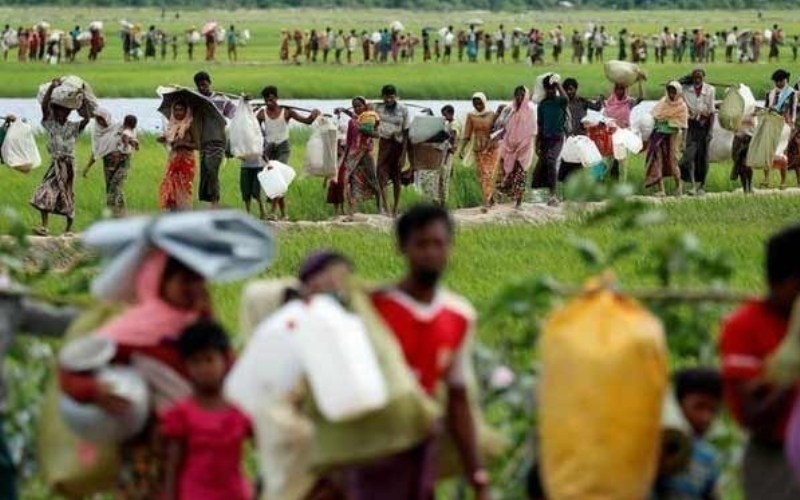United Nations/Dhaka: The UN has renewed its appeal for aid for Rohingyas on the first anniversary on Saturday of the crackdown that led to more than 700,000 members of the minority community fleeing Myanmar to neighbouring Bangladesh.
The UN Refugee Agency (UNHCR) led the aid appeals on Friday, calling for support for the stateless refugees in Bangladesh and for their generous hosts. They are still living in misery in crowded make-shift refugee camps waiting to go back home to Myanmar, Xinhua news agency reported.
On August 25, 2017, militants from the Arakan Rohingya Salvation Army (ARSA), classified as terrorists by the Myanmar government, attacked some 30 security posts in the western state of Rakhine.
The attack led to a military crackdown in the region that caused the exodus of Rohingyas, whom the Myanmar authorities do not recognize as its citizens and consider them Bangladeshi immigrants. The UN accused the Myanmar military of carrying out an operation of ethnic cleansing with signs of genocide through killings, rapes and the razing of houses that year.
“Kutupalong settlement in Cox’s Bazar today shelters more than 600,000 refugees, making it the largest and most densely populated refugee settlement in the world,” said the UNHCR.
“Over the past year, UNHCR teams have been working to support Bangladeshi authorities in areas including psycho-social counselling, prevention of sexual and gender-based violence, identification of and assistance to separated and unaccompanied children and other vulnerable refugees,” the agency said.
It also said the joint response plan launched in March 2018, appealing for $951 million for the period from March to December 2018, was only one-third funded.
The World Health Organization said that the biggest challenge was “the need to further scale up services to meet the health needs of this highly vulnerable population”.
While so many in Kutupalong were flooded out or wallowed in mud caused by monsoon rains beginning in June, the International Organization for Migration said another cyclone season looms at the end of September and severe funding shortages threaten delivery of vital services.
The International Committee of the Red Cross (ICRC) urged all sides to sit together and adopt a “mid-term” plan for the Rohingyas.
“Future will tell us what is possible or not. Today we cannot completely say that ‘yes, return will not happen’. All the indications so far show that process goes towards the return,” Head of the Delegation in Bangladesh Ikhtiyar Aslanov told bdnews24.com.
“And even it (return) starts today based on the January 16 plan between the two countries, it will need another seven years on top of the one year,” he said.
He argued in favour of his mid-term plan, referring to the deal when Myanmar agreed with Bangladesh to start repatriation with around 2,000 refugees a week.
Meanwhile, ARSA affirmed its intention to continue with the fight to allow Rohingyas to return to Rakhine, and accused the Myanmar authorities of looking to destroy their people.
[source_without_link]IANS[/source_without_link]

